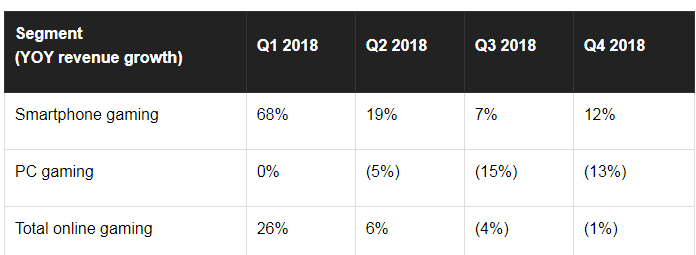Tencent Teams Up With Nintendo Again To Launch The Switch In China

Shares of Nintendo (NASDAQOTH:NTDOY) recently surged to a six-month high after the company announced that it would partner with Tencent (NASDAQOTH:TCEHY) to sell its Switch console in China. Tencent's filing indicates that New Super Mario Bros. U Deluxe received a provisional approval from government regulators, but the companies still need another license from China's central publishing regulator to start selling games.
Nintendo's Switch was already available on the grey market in China, but a government-approved launch would open up sales across official retail channels. This marks the second time the two companies teamed up -- Nintendo previously partnered with Tencent to launch its hit game Arena of Valor as a Switch title for overseas markets.
Why Nintendo needs China
China is the world's largest gaming market, but a 15-year ban on gaming consoles from 2000 to 2015 turned PCs and smartphones into the dominant gaming platforms. That market shift, along with strict regulations on which games could be released, made it tough for Sony (NYSE:SNE)and Microsoft (NASDAQ:MSFT) to sell consoles after they were permitted to re-enter the market.
Nintendo skirted the console ban in the early 2000s via a Chinese joint venture called iQue, which tucked the Nintendo 64's hardware into a large game controller that was classified as a "plug-and-play system" instead of a gaming console. That odd loophole enabled Nintendo to stay active in China, but iQue's devices flopped as gamers shifted to PCs.
Nintendo's previous console, the Wii U, flopped due to a lack of third-party titles, a confusing form factor, and a high price tag. Its poor worldwide sales indicated that it would likely fail in China, so Nintendo avoided the market.
The Wii U's successor, the Switch, fared much better when it was released in 2017. Nintendo has shipped over 33 million Switches to date, compared to 42 million Xbox Ones and 95 million PS4s. That's an impressive figure considering it was launched nearly four years after the Xbox One and PS4.
However, sales of all three consoles are now decelerating in a saturated and matured market. Nintendo originally planned to sell 20 million Switches for the full fiscal year (which ended on March 31) to reach 38 million lifetime shipments. It cut that target to 17 million in January due to weaker-than-expected holiday sales, and it could report even softer numbers when full-year earnings are released on April 25.
Sales of Switch consoles, accessories, and games accounted for 90% of Nintendo's top line last quarter. Launching the Switch in China, along with a rumored launch of an upgraded Switch later this year, could strengthen that core business.
Why Tencent needs Nintendo
Tencent's core gaming business, which generated 29% of its revenue last quarter, struggled with a nine-month freeze on new gaming approvals in China last year. An ongoing decline in its PC gaming revenue also offset its gains in the smartphone gaming market over the past year.

Tencent still hasn't gained regulatory approval for the PC version of PUBG and Fortnite, microtransactions for PUBG Mobile, or Monster Hunter: World. Tencent needs those big approvals to move the needle for its gaming business.
Partnering with Nintendo can help Tencent in two ways. First, the company can port some of its games to the Switch to create a third gaming platform beyond smartphones and PCs. Second, Nintendo can release those titles in overseas markets, which complements the company's expansion beyond China with hit games like PUBG Mobile.
But investors shouldn't get too excited...
This sounds like a win-win deal for Nintendo and Tencent, but it's unclear when other Switch games will be approved. If the process is as sluggish as China's approvals for PC and mobile games, gamers could lose interest in the console -- which already faces an uphill battle against mobile devices and PCs.
Furthermore, many Chinese gamers who wanted a Switch might have already bought one overseas or through the grey market. Therefore, "official" approval of the Switch in China might not significantly boost the console's sales. It's still a positive development for both companies, but investors shouldn't overestimate the deal's overall impact.
This article originally appeared in the Motley Fool.
Teresa Kersten, an employee of LinkedIn, a Microsoft subsidiary, is a member of The Motley Fool's board of directors. Leo Sun owns shares of Tencent Holdings. The Motley Fool owns shares of and recommends Microsoft and Tencent Holdings. The Motley Fool recommends Nintendo. The Motley Fool has a disclosure policy.





















